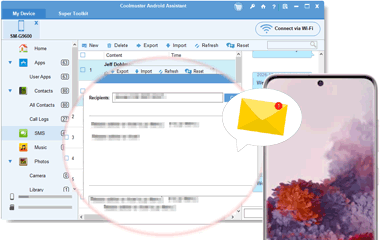
"2024 Approved Prime FPS Range in Leisurely Cinematic Scenes"

Prime FPS Range in Leisurely Cinematic Scenes
Frame rate is an extremely important parameter in videography. Frame rate is the frequency at which frames or images are recorded or displayed. You have to consider shooting frame rate and displaying frame rate for videography. For slow-motion videos, the shooting frame rate should be higher than the displaying frame rate. The displaying frame rate generally stays fixed for any video project.
The shooting frame rate determines how slow your video will look. If you shoot at 120 frames per second(fps) and display it at 30 fps, the video will play at 4 times slower. If you shoot at 480 fps, you are primarily shooting for super slow motion videos. We will explain all the different shooting frame rates for slow motion and state the best situations to use them.
1. 60 fps
Anything higher than 30 fps is for creating slow-motion videos. 60 fps is the standard slow motion frame rate for Hollywood movies. You must have come across scenes where the superhero walks out slowly in a dramatic manner. Such scenes are shot at 60fps and displayed at 24 or 30 fps. Besides, this frame rate is suitable for capturing character’s emotions as well.
Basically, you should use 60 fps when the action is already slow. Some examples are someone walking out of an action sequence, blowing off candles, or getting dressed. Shooting video at 60fps enhances the smoothness of the action. The visuals look more detailed and real. That is why people shoot 4K videos at 60fps.
Best Situation - When you are shooting slow-motion video for any action that is already slow.
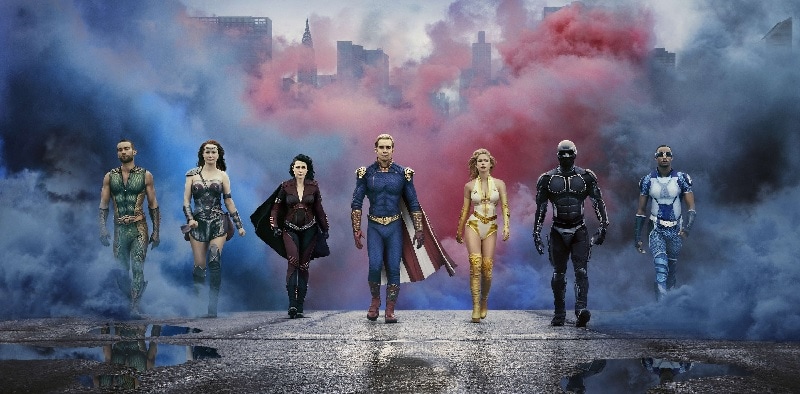
2. 120 fps
Let us assume that you are shooting at 120 fps and displaying at 30 fps. The video will play 4 times slower than it is in real life. The slow-motion effect will be two times slower than shooting at 60fps. If you shoot slow action at 120 fps, the output will be unusually slow and visually unpleasant. Therefore, you should shoot fast action scenes at 120 fps.
Some of the examples are someone running, playing slow sports, or drifting a car. You will find professionals using 120 fps for showing the slow-motion football kick and baseball bat swing. The scene will come out super smooth and visually crisp. 120 fps is widely used in the gaming industry for fast-paced action games.
Best Situation - When you are shooting slow-motion video for fast-paced action and fast moving subjects.
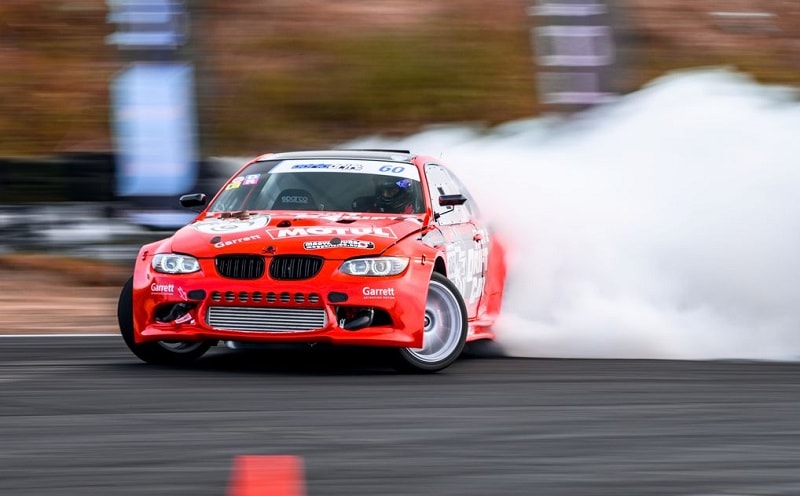
3. 180 fps
The scenes that are suitable for 120 fps are also suitable for 180 fps. This means you can shoot fast-moving subjects, objects, and elements. Some of the examples are horse riding, subject running, riding a bike, and likewise. But when you shoot at 180 fps, your objective is to show down the action much further.
This means that a scene shot at 180 fps will look slower than at 120 fps. You must have seen scenes where an object in motion is slowed down and zoomed in for detail. Such scenes are perfect for 180 frame rate. You may not achieve super slow mow scenes but it is going to be somewhere near that.
Best Situation - When you are shooting slow-motion video for fast moving action with emphasis on slow downing motion further.
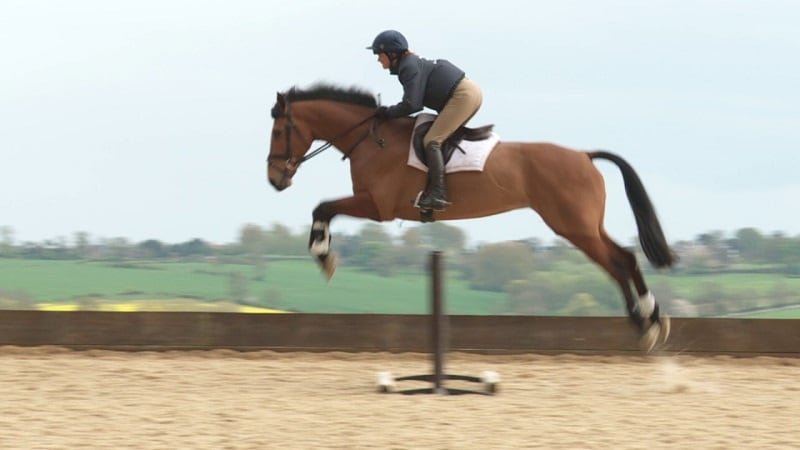
4. 240 fps
When you are capturing an action that is too fast for your eyes to see, you should use 240 fps. For example, when you are watching a fast-paced sports event, your eyes cannot capture all movements. When you capture those scenes at 240 fps, the output video will look more comfortable for the eyes. The use of 240 fps is very popular in sports like cricket.
The broadcasters show replays in slow motion by capturing bat and ball strikes at 240 fps. You will also come across videos like slow mow water splashes that are shot at 240 fps. In action movies, you can see the hero punching the villain in the face. Then the scene shows the impact of the punch on the face with skin and muscle getting shattered. Such scenes are perfectly shot at 240 fps.
Best Situation - When you are shooting slow-motion video for action that are too fast for the eyes.
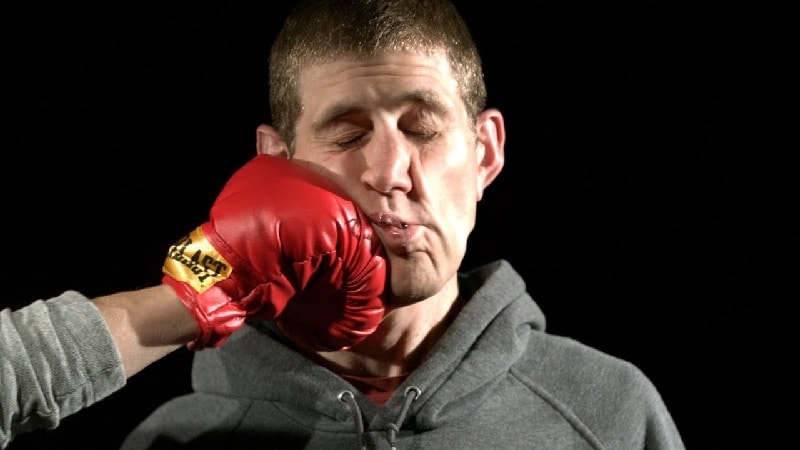
5. 480 fps
If you want super slow motion video, you have to shoot at 480 fps. The 480 frame rate is considered to be the base of super slow motion. There are higher frame rates available for more enhanced super slow-motion videos. When you shoot at 480 fps, the video will play 16 times slower. This is usual in showcasing extremely fast movements.
For example, when you are shooting with a gun, the bullet goes out at lightning speed. You will need 480 fps to capture the scene of the bullet coming out of the gun and show it in extremely slow motion. Some other scenarios are slicing a vegetable with a knife, dropping a water-filled balloon on the floor, or performing skateboard skills. All such scenarios should be shot at 480 fps for super slow video output.
Best Situation - When you are shooting extremely fast actions and show in super slow motion.
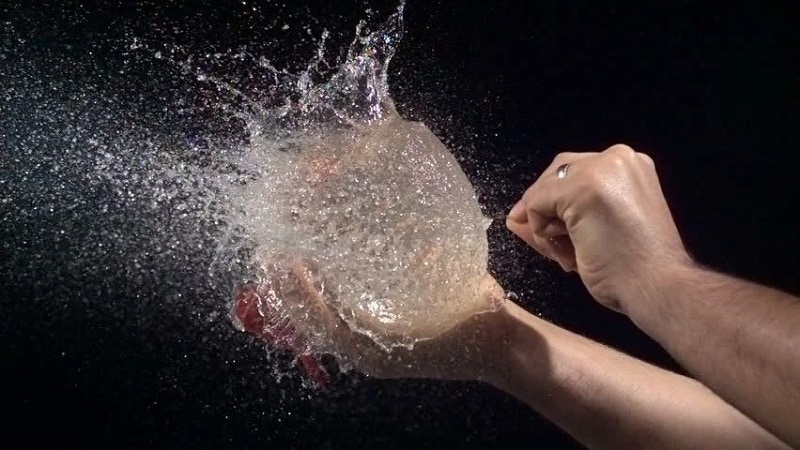
Conclusion
There is no definite answer to which is the best frame rate for slow motion. It completely depends on what you are shooting. Yes, it is true that 60 fps is the standard slow motion fps. But 60 fps is only suitable when the action is low as well. Different frame rates are suitable for different scenes. The faster the action you are shooting, the higher should be the frame rate. For smooth super slow motion video, you should consider shooting at 480 fps. Frame rate beyond 480 is suitable for capturing slow-motion explosion videos.
Frame rate is an extremely important parameter in videography. Frame rate is the frequency at which frames or images are recorded or displayed. You have to consider shooting frame rate and displaying frame rate for videography. For slow-motion videos, the shooting frame rate should be higher than the displaying frame rate. The displaying frame rate generally stays fixed for any video project.
The shooting frame rate determines how slow your video will look. If you shoot at 120 frames per second(fps) and display it at 30 fps, the video will play at 4 times slower. If you shoot at 480 fps, you are primarily shooting for super slow motion videos. We will explain all the different shooting frame rates for slow motion and state the best situations to use them.
1. 60 fps
Anything higher than 30 fps is for creating slow-motion videos. 60 fps is the standard slow motion frame rate for Hollywood movies. You must have come across scenes where the superhero walks out slowly in a dramatic manner. Such scenes are shot at 60fps and displayed at 24 or 30 fps. Besides, this frame rate is suitable for capturing character’s emotions as well.
Basically, you should use 60 fps when the action is already slow. Some examples are someone walking out of an action sequence, blowing off candles, or getting dressed. Shooting video at 60fps enhances the smoothness of the action. The visuals look more detailed and real. That is why people shoot 4K videos at 60fps.
Best Situation - When you are shooting slow-motion video for any action that is already slow.

2. 120 fps
Let us assume that you are shooting at 120 fps and displaying at 30 fps. The video will play 4 times slower than it is in real life. The slow-motion effect will be two times slower than shooting at 60fps. If you shoot slow action at 120 fps, the output will be unusually slow and visually unpleasant. Therefore, you should shoot fast action scenes at 120 fps.
Some of the examples are someone running, playing slow sports, or drifting a car. You will find professionals using 120 fps for showing the slow-motion football kick and baseball bat swing. The scene will come out super smooth and visually crisp. 120 fps is widely used in the gaming industry for fast-paced action games.
Best Situation - When you are shooting slow-motion video for fast-paced action and fast moving subjects.

3. 180 fps
The scenes that are suitable for 120 fps are also suitable for 180 fps. This means you can shoot fast-moving subjects, objects, and elements. Some of the examples are horse riding, subject running, riding a bike, and likewise. But when you shoot at 180 fps, your objective is to show down the action much further.
This means that a scene shot at 180 fps will look slower than at 120 fps. You must have seen scenes where an object in motion is slowed down and zoomed in for detail. Such scenes are perfect for 180 frame rate. You may not achieve super slow mow scenes but it is going to be somewhere near that.
Best Situation - When you are shooting slow-motion video for fast moving action with emphasis on slow downing motion further.

4. 240 fps
When you are capturing an action that is too fast for your eyes to see, you should use 240 fps. For example, when you are watching a fast-paced sports event, your eyes cannot capture all movements. When you capture those scenes at 240 fps, the output video will look more comfortable for the eyes. The use of 240 fps is very popular in sports like cricket.
The broadcasters show replays in slow motion by capturing bat and ball strikes at 240 fps. You will also come across videos like slow mow water splashes that are shot at 240 fps. In action movies, you can see the hero punching the villain in the face. Then the scene shows the impact of the punch on the face with skin and muscle getting shattered. Such scenes are perfectly shot at 240 fps.
Best Situation - When you are shooting slow-motion video for action that are too fast for the eyes.

5. 480 fps
If you want super slow motion video, you have to shoot at 480 fps. The 480 frame rate is considered to be the base of super slow motion. There are higher frame rates available for more enhanced super slow-motion videos. When you shoot at 480 fps, the video will play 16 times slower. This is usual in showcasing extremely fast movements.
For example, when you are shooting with a gun, the bullet goes out at lightning speed. You will need 480 fps to capture the scene of the bullet coming out of the gun and show it in extremely slow motion. Some other scenarios are slicing a vegetable with a knife, dropping a water-filled balloon on the floor, or performing skateboard skills. All such scenarios should be shot at 480 fps for super slow video output.
Best Situation - When you are shooting extremely fast actions and show in super slow motion.

Conclusion
There is no definite answer to which is the best frame rate for slow motion. It completely depends on what you are shooting. Yes, it is true that 60 fps is the standard slow motion fps. But 60 fps is only suitable when the action is low as well. Different frame rates are suitable for different scenes. The faster the action you are shooting, the higher should be the frame rate. For smooth super slow motion video, you should consider shooting at 480 fps. Frame rate beyond 480 is suitable for capturing slow-motion explosion videos.
Frame rate is an extremely important parameter in videography. Frame rate is the frequency at which frames or images are recorded or displayed. You have to consider shooting frame rate and displaying frame rate for videography. For slow-motion videos, the shooting frame rate should be higher than the displaying frame rate. The displaying frame rate generally stays fixed for any video project.
The shooting frame rate determines how slow your video will look. If you shoot at 120 frames per second(fps) and display it at 30 fps, the video will play at 4 times slower. If you shoot at 480 fps, you are primarily shooting for super slow motion videos. We will explain all the different shooting frame rates for slow motion and state the best situations to use them.
1. 60 fps
Anything higher than 30 fps is for creating slow-motion videos. 60 fps is the standard slow motion frame rate for Hollywood movies. You must have come across scenes where the superhero walks out slowly in a dramatic manner. Such scenes are shot at 60fps and displayed at 24 or 30 fps. Besides, this frame rate is suitable for capturing character’s emotions as well.
Basically, you should use 60 fps when the action is already slow. Some examples are someone walking out of an action sequence, blowing off candles, or getting dressed. Shooting video at 60fps enhances the smoothness of the action. The visuals look more detailed and real. That is why people shoot 4K videos at 60fps.
Best Situation - When you are shooting slow-motion video for any action that is already slow.

2. 120 fps
Let us assume that you are shooting at 120 fps and displaying at 30 fps. The video will play 4 times slower than it is in real life. The slow-motion effect will be two times slower than shooting at 60fps. If you shoot slow action at 120 fps, the output will be unusually slow and visually unpleasant. Therefore, you should shoot fast action scenes at 120 fps.
Some of the examples are someone running, playing slow sports, or drifting a car. You will find professionals using 120 fps for showing the slow-motion football kick and baseball bat swing. The scene will come out super smooth and visually crisp. 120 fps is widely used in the gaming industry for fast-paced action games.
Best Situation - When you are shooting slow-motion video for fast-paced action and fast moving subjects.
 Glary Utilities PRO - Premium all-in-one utility to clean, speed up, maintain and protect your PC
Glary Utilities PRO - Premium all-in-one utility to clean, speed up, maintain and protect your PC

3. 180 fps
The scenes that are suitable for 120 fps are also suitable for 180 fps. This means you can shoot fast-moving subjects, objects, and elements. Some of the examples are horse riding, subject running, riding a bike, and likewise. But when you shoot at 180 fps, your objective is to show down the action much further.
This means that a scene shot at 180 fps will look slower than at 120 fps. You must have seen scenes where an object in motion is slowed down and zoomed in for detail. Such scenes are perfect for 180 frame rate. You may not achieve super slow mow scenes but it is going to be somewhere near that.
Best Situation - When you are shooting slow-motion video for fast moving action with emphasis on slow downing motion further.

4. 240 fps
When you are capturing an action that is too fast for your eyes to see, you should use 240 fps. For example, when you are watching a fast-paced sports event, your eyes cannot capture all movements. When you capture those scenes at 240 fps, the output video will look more comfortable for the eyes. The use of 240 fps is very popular in sports like cricket.
The broadcasters show replays in slow motion by capturing bat and ball strikes at 240 fps. You will also come across videos like slow mow water splashes that are shot at 240 fps. In action movies, you can see the hero punching the villain in the face. Then the scene shows the impact of the punch on the face with skin and muscle getting shattered. Such scenes are perfectly shot at 240 fps.
Best Situation - When you are shooting slow-motion video for action that are too fast for the eyes.

5. 480 fps
If you want super slow motion video, you have to shoot at 480 fps. The 480 frame rate is considered to be the base of super slow motion. There are higher frame rates available for more enhanced super slow-motion videos. When you shoot at 480 fps, the video will play 16 times slower. This is usual in showcasing extremely fast movements.
For example, when you are shooting with a gun, the bullet goes out at lightning speed. You will need 480 fps to capture the scene of the bullet coming out of the gun and show it in extremely slow motion. Some other scenarios are slicing a vegetable with a knife, dropping a water-filled balloon on the floor, or performing skateboard skills. All such scenarios should be shot at 480 fps for super slow video output.
Best Situation - When you are shooting extremely fast actions and show in super slow motion.

Conclusion
There is no definite answer to which is the best frame rate for slow motion. It completely depends on what you are shooting. Yes, it is true that 60 fps is the standard slow motion fps. But 60 fps is only suitable when the action is low as well. Different frame rates are suitable for different scenes. The faster the action you are shooting, the higher should be the frame rate. For smooth super slow motion video, you should consider shooting at 480 fps. Frame rate beyond 480 is suitable for capturing slow-motion explosion videos.
Frame rate is an extremely important parameter in videography. Frame rate is the frequency at which frames or images are recorded or displayed. You have to consider shooting frame rate and displaying frame rate for videography. For slow-motion videos, the shooting frame rate should be higher than the displaying frame rate. The displaying frame rate generally stays fixed for any video project.
The shooting frame rate determines how slow your video will look. If you shoot at 120 frames per second(fps) and display it at 30 fps, the video will play at 4 times slower. If you shoot at 480 fps, you are primarily shooting for super slow motion videos. We will explain all the different shooting frame rates for slow motion and state the best situations to use them.
1. 60 fps
Anything higher than 30 fps is for creating slow-motion videos. 60 fps is the standard slow motion frame rate for Hollywood movies. You must have come across scenes where the superhero walks out slowly in a dramatic manner. Such scenes are shot at 60fps and displayed at 24 or 30 fps. Besides, this frame rate is suitable for capturing character’s emotions as well.
Basically, you should use 60 fps when the action is already slow. Some examples are someone walking out of an action sequence, blowing off candles, or getting dressed. Shooting video at 60fps enhances the smoothness of the action. The visuals look more detailed and real. That is why people shoot 4K videos at 60fps.
Best Situation - When you are shooting slow-motion video for any action that is already slow.

2. 120 fps
Let us assume that you are shooting at 120 fps and displaying at 30 fps. The video will play 4 times slower than it is in real life. The slow-motion effect will be two times slower than shooting at 60fps. If you shoot slow action at 120 fps, the output will be unusually slow and visually unpleasant. Therefore, you should shoot fast action scenes at 120 fps.
Some of the examples are someone running, playing slow sports, or drifting a car. You will find professionals using 120 fps for showing the slow-motion football kick and baseball bat swing. The scene will come out super smooth and visually crisp. 120 fps is widely used in the gaming industry for fast-paced action games.
Best Situation - When you are shooting slow-motion video for fast-paced action and fast moving subjects.

3. 180 fps
The scenes that are suitable for 120 fps are also suitable for 180 fps. This means you can shoot fast-moving subjects, objects, and elements. Some of the examples are horse riding, subject running, riding a bike, and likewise. But when you shoot at 180 fps, your objective is to show down the action much further.
This means that a scene shot at 180 fps will look slower than at 120 fps. You must have seen scenes where an object in motion is slowed down and zoomed in for detail. Such scenes are perfect for 180 frame rate. You may not achieve super slow mow scenes but it is going to be somewhere near that.
Best Situation - When you are shooting slow-motion video for fast moving action with emphasis on slow downing motion further.

 SwifDoo PDF Perpetual (1 PC) Free upgrade. No monthly fees ever.
SwifDoo PDF Perpetual (1 PC) Free upgrade. No monthly fees ever.
4. 240 fps
When you are capturing an action that is too fast for your eyes to see, you should use 240 fps. For example, when you are watching a fast-paced sports event, your eyes cannot capture all movements. When you capture those scenes at 240 fps, the output video will look more comfortable for the eyes. The use of 240 fps is very popular in sports like cricket.
The broadcasters show replays in slow motion by capturing bat and ball strikes at 240 fps. You will also come across videos like slow mow water splashes that are shot at 240 fps. In action movies, you can see the hero punching the villain in the face. Then the scene shows the impact of the punch on the face with skin and muscle getting shattered. Such scenes are perfectly shot at 240 fps.
Best Situation - When you are shooting slow-motion video for action that are too fast for the eyes.

5. 480 fps
If you want super slow motion video, you have to shoot at 480 fps. The 480 frame rate is considered to be the base of super slow motion. There are higher frame rates available for more enhanced super slow-motion videos. When you shoot at 480 fps, the video will play 16 times slower. This is usual in showcasing extremely fast movements.
For example, when you are shooting with a gun, the bullet goes out at lightning speed. You will need 480 fps to capture the scene of the bullet coming out of the gun and show it in extremely slow motion. Some other scenarios are slicing a vegetable with a knife, dropping a water-filled balloon on the floor, or performing skateboard skills. All such scenarios should be shot at 480 fps for super slow video output.
Best Situation - When you are shooting extremely fast actions and show in super slow motion.

Conclusion
There is no definite answer to which is the best frame rate for slow motion. It completely depends on what you are shooting. Yes, it is true that 60 fps is the standard slow motion fps. But 60 fps is only suitable when the action is low as well. Different frame rates are suitable for different scenes. The faster the action you are shooting, the higher should be the frame rate. For smooth super slow motion video, you should consider shooting at 480 fps. Frame rate beyond 480 is suitable for capturing slow-motion explosion videos.
- Title: 2024 Approved Prime FPS Range in Leisurely Cinematic Scenes
- Author: Richard
- Created at : 2024-07-30 02:36:13
- Updated at : 2024-07-31 02:36:13
- Link: https://extra-support.techidaily.com/2024-approved-prime-fps-range-in-leisurely-cinematic-scenes/
- License: This work is licensed under CC BY-NC-SA 4.0.






